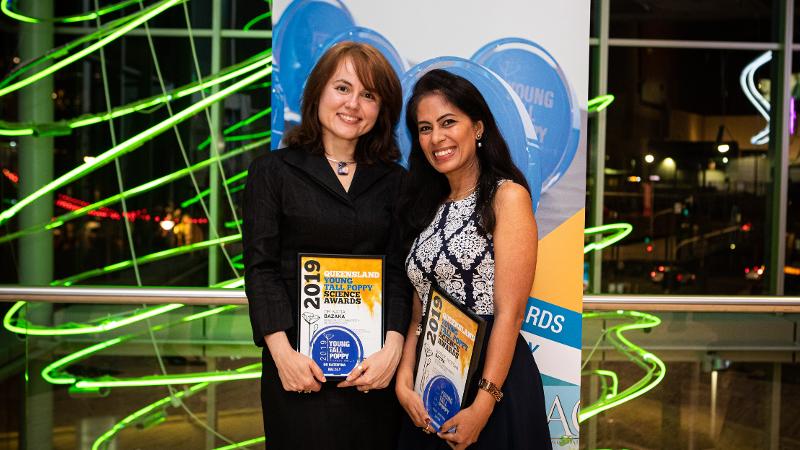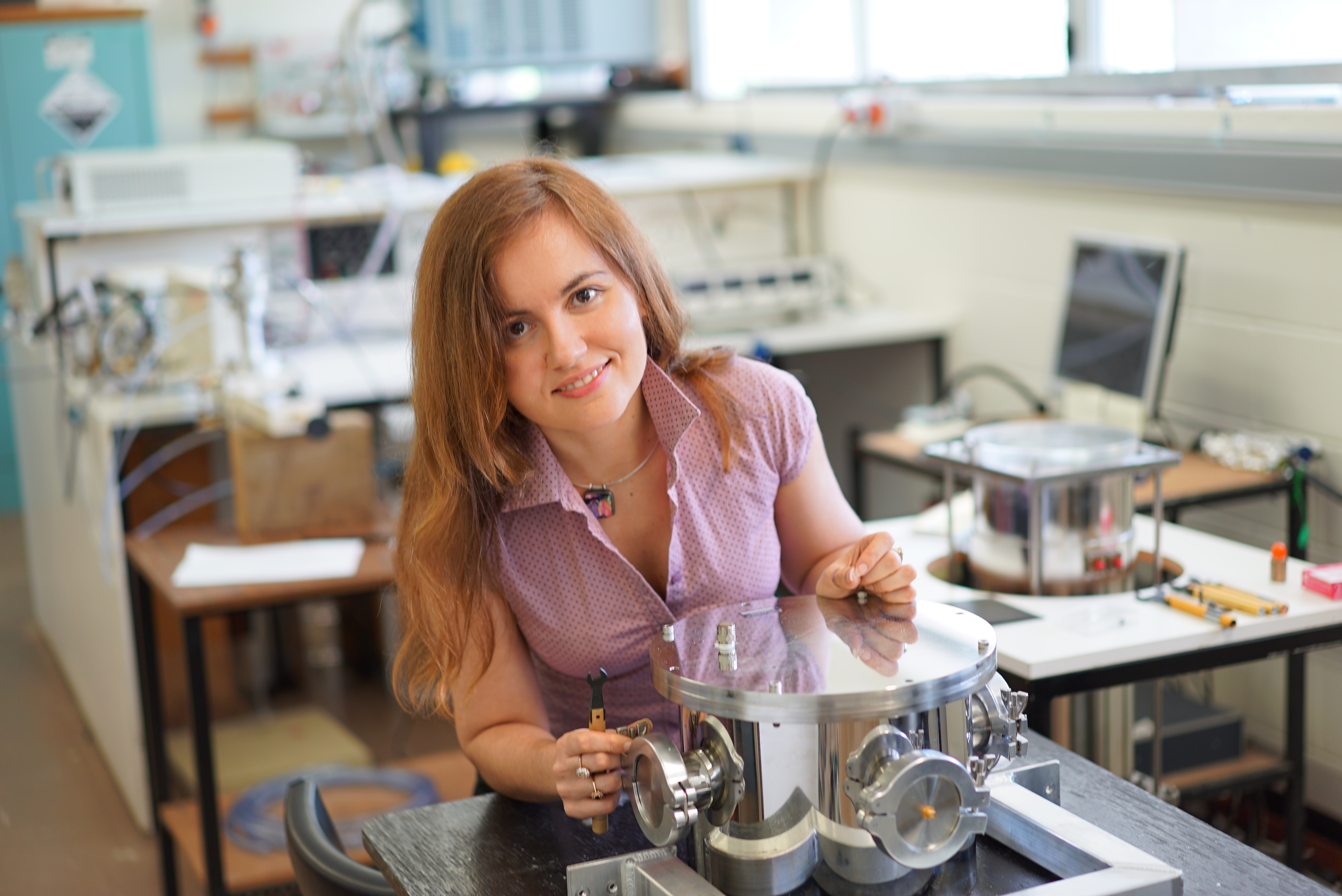
Two of QUT’s top young researchers have been honoured with Queensland Young Tall Poppy Science Awards.
Associate Professor Jyotsna Batra has been awarded for her leading research identifying and characterising genetic variations associated with prostate cancer, and Adjunct Associate Professor Katia (Kateryna) Bazaka for her work on plasma and its potential range of applications, including in personalised cancer treatments and biofuel production.
The annual Young Tall Poppy Science Awards, a collaboration between the Australian Institute of Policy & Science (AIPS) and the Office of the Queensland Chief Scientist, recognise and celebrate individuals who demonstrate scientific excellence and passion for science communication. The latest crop of 14 Queensland awards recipients was announced on Friday night, September 13.
Associate Professor Jyotsna Batra, from QUT’s Institute of Health and Biomedical Innovation and Faculty of Health, has identified several genes that may contribute to the risk of developing prostate cancer, which is the second leading cause of cancer death in Australian men.
Her Cancer Molecular Genetics Group is also working to identify small DNA variations, known as single nucleotide polymorphisms (SNPs, pronounced ‘snips’), that may be linked to prostate cancer.
“My research focuses on understanding the genetic basis of prostate cancer to improve testing and diagnosis and identify targets for therapeutic interventions,” Associate Professor Batra said.
“SNPs are the most common type of genetic variation among people. We have looked at about 1 million SNPs and shortlisted about 150 variations found commonly in men with prostate cancer.
“The next step is to find those SNPs that may help us identify which men whose cancer, when it’s diagnosed, is likely to be aggressive rather than slow-growing, and who would benefit the most from intensive treatment.”
Associate Professor Batra is also leading a team this year awarded $US700,000 United States Department of Defense Idea Development Award funding to develop a therapeutic strategy that targets a non-coding RNA molecule that she and collaborators have identified through genetic research that is linked to aggressive prostate cancer.

Katia Bazaka, former senior lecturer now Adjunct Associate Professor in QUT’s Science and Engineering Faculty, designs devices in the laboratory to generate plasma, an ionised gas many people know from its association with lighting and stars (stars, including our Sun, are essentially giant balls of plasma).
Her research with QUT’s Institute of Health and Biomedical Innovation and Institute for Future Environments searches for ways to harness the reactivity of plasma to meet some of the world’s most pressing challenges.
“My research is very much about taming the power of plasma and exploring novel ways to use it,” she said.
“Plasma technology is already used in a variety of applications, including in semiconductor device fabrication, plasma TV screens and neon signs.
“Plasma has a unique ability to both induce changes and adapt to changes in the material it contacts, so there are many other potential uses for plasma as we generate it at lower temperatures and at atmospheric pressure.
“Potential applications include in personalised cancer treatments, where it kills cancer cells without harming other healthy cells, using it to remove contaminants from surfaces and wastewater, for transformation of waste biomass into precursor material for chemicals and biofuels, or using it to ‘zap’ any of the industrial microbes used in chemical manufacturing processes to increase their effectiveness.”
QUT Media contacts: Karen Milliner, 07 3138 1841 or k.milliner@qut.edu.au
After hours: Rose Trapnell, 0407 585 901 or media@qut.edu.au




